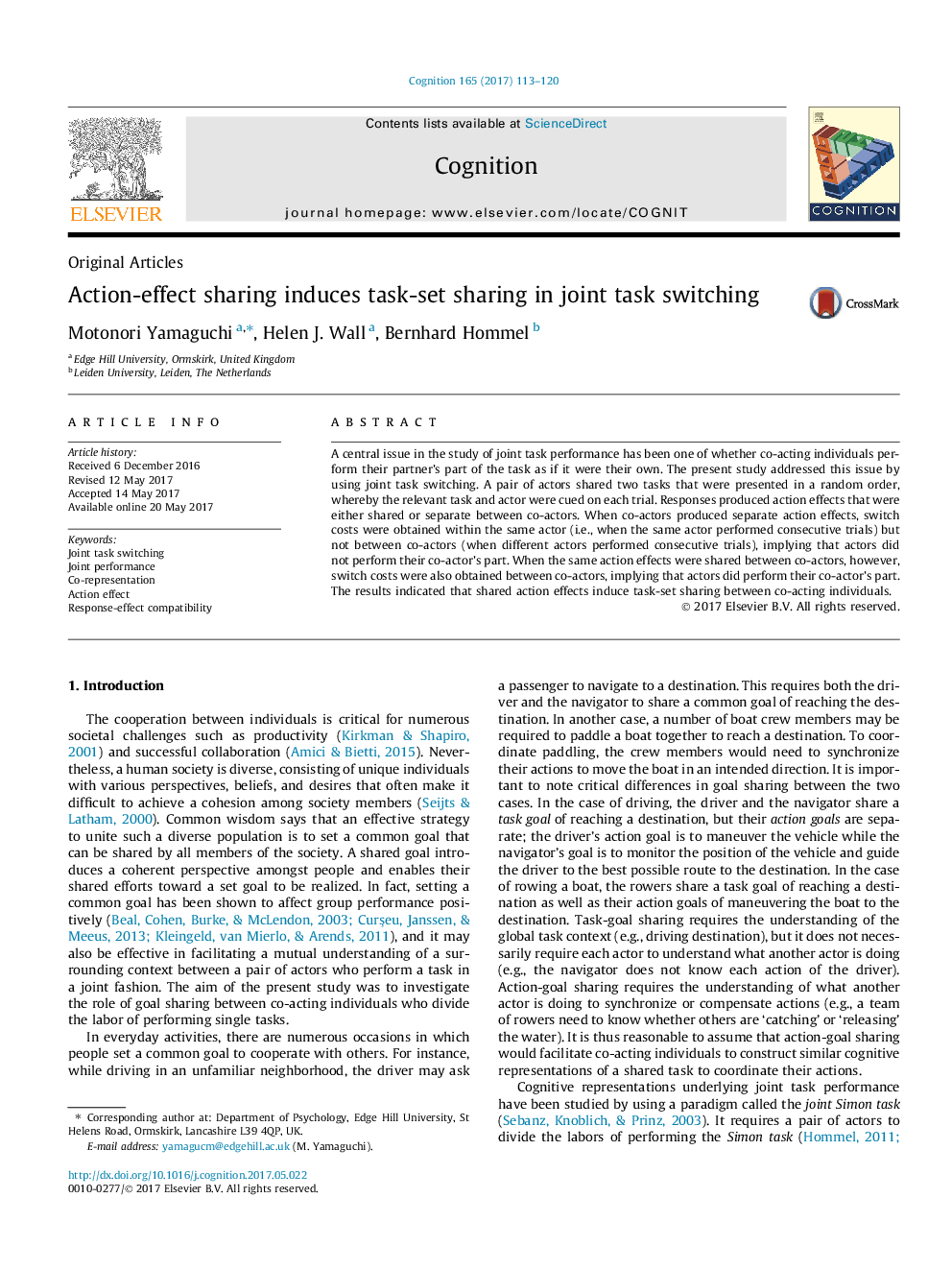| Article ID | Journal | Published Year | Pages | File Type |
|---|---|---|---|---|
| 5041509 | Cognition | 2017 | 8 Pages |
â¢Pairs of actors performed two tasks in a joint fashion.â¢Some pairs produced the same action effects (shared action-effect group).â¢Other pairs produced different action effects (separate action-effect group).â¢Task-switch costs were obtained with the shared action effects.â¢Action-effect sharing induces task-set sharing.
A central issue in the study of joint task performance has been one of whether co-acting individuals perform their partner's part of the task as if it were their own. The present study addressed this issue by using joint task switching. A pair of actors shared two tasks that were presented in a random order, whereby the relevant task and actor were cued on each trial. Responses produced action effects that were either shared or separate between co-actors. When co-actors produced separate action effects, switch costs were obtained within the same actor (i.e., when the same actor performed consecutive trials) but not between co-actors (when different actors performed consecutive trials), implying that actors did not perform their co-actor's part. When the same action effects were shared between co-actors, however, switch costs were also obtained between co-actors, implying that actors did perform their co-actor's part. The results indicated that shared action effects induce task-set sharing between co-acting individuals.
